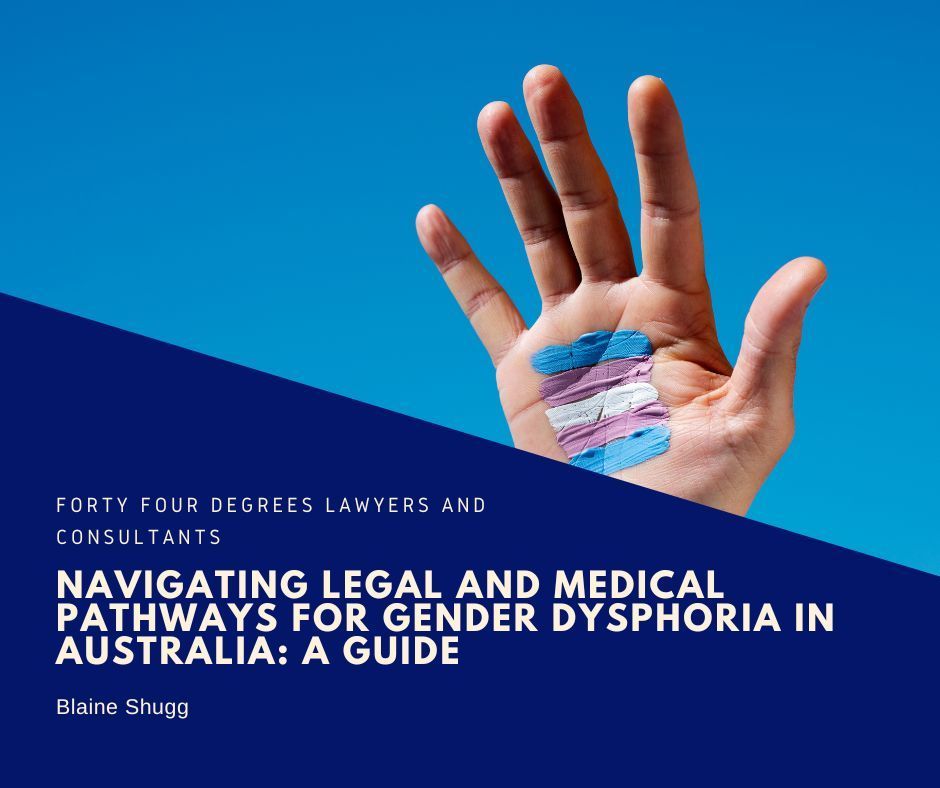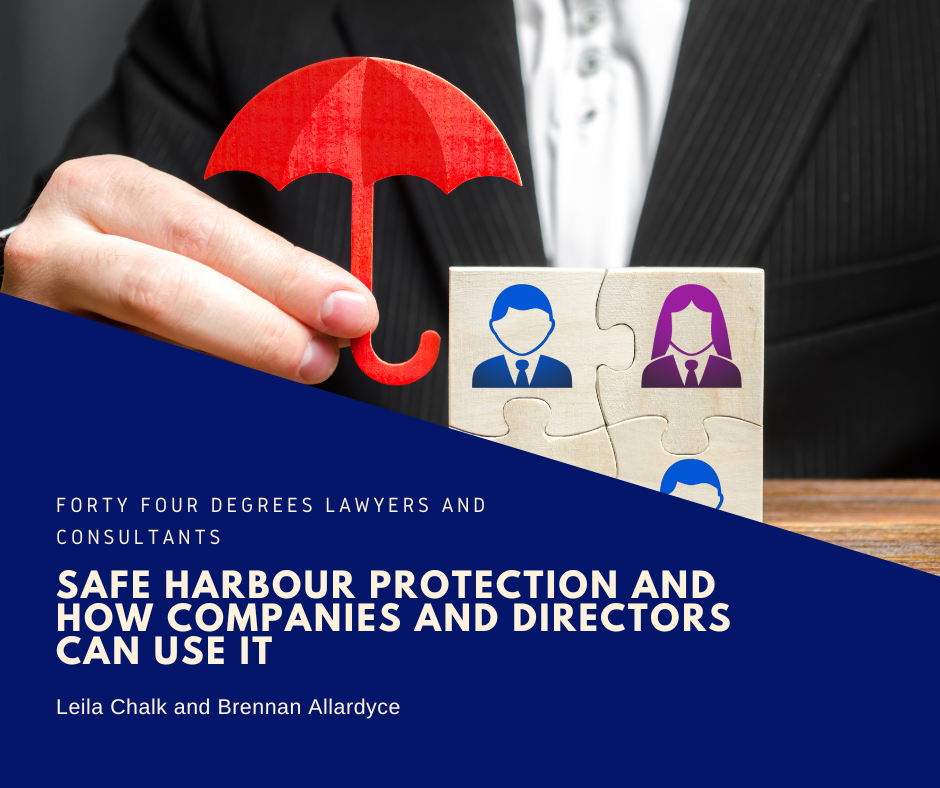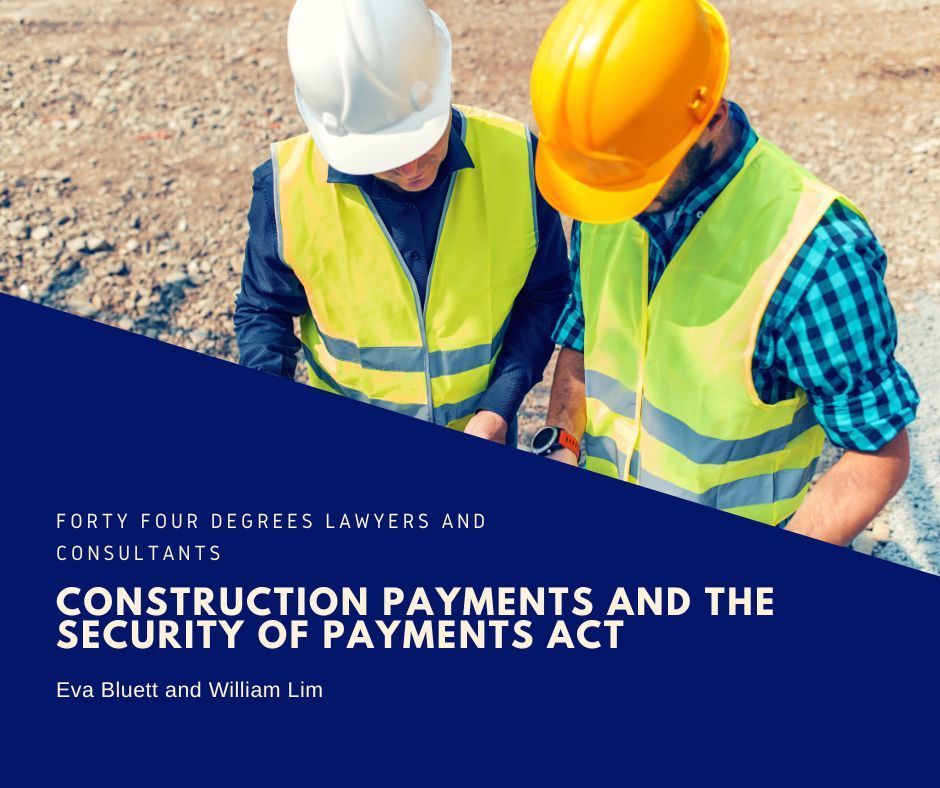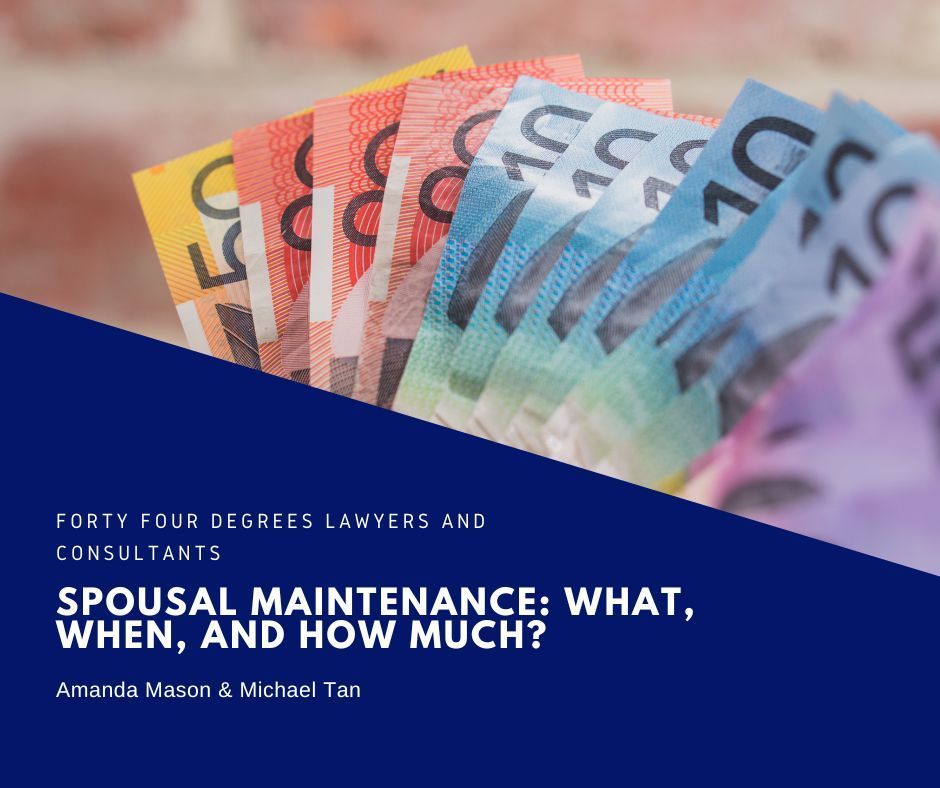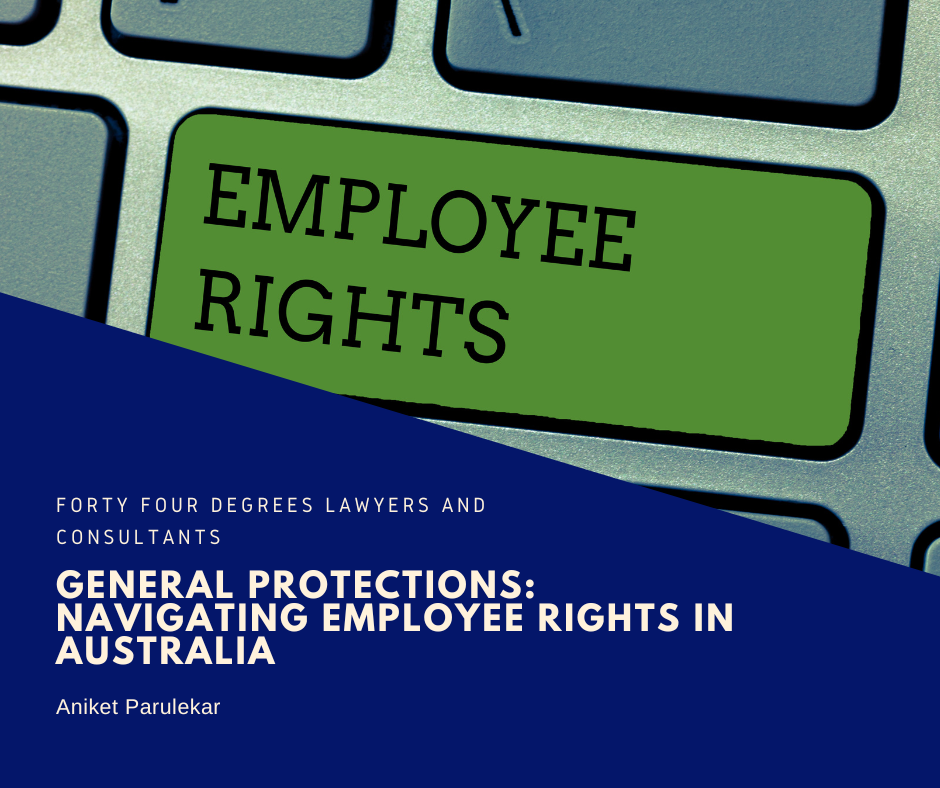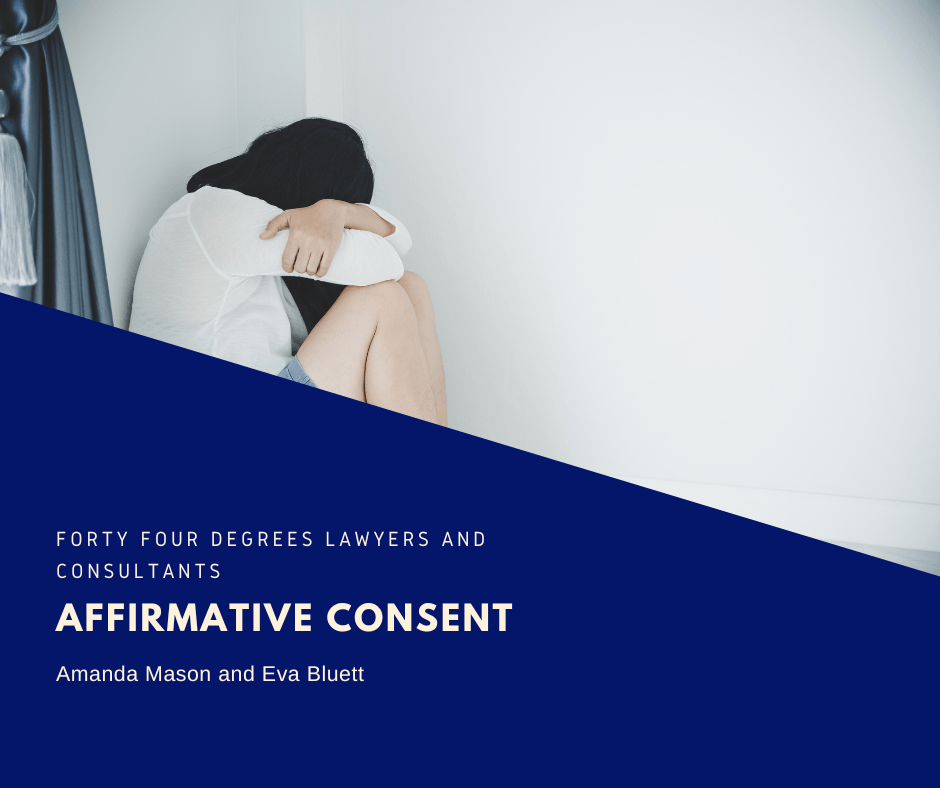Mandatory Vaccinations in the Workplace
Nicola Drakeford, Celine Bodera, and Emma Todd • Oct 11, 2021
No jab, no work?

The Victorian and New South Wales State Governments have recently mandated COVID-19 vaccinations for specified employers and workers. Separately, some employers such as Qantas and SPC are proactively requiring vaccinations from their staff, consistent with their obligations under section 21 of the Occupation Health and Safety Act 2004
to provide a working environment that is safe and free of risk to health.
So, can your current (or potential) employer force you to get vaccinated? The short answer is no. Your employer cannot force you to get vaccinated. However, refusing to get vaccinated can have serious consequences for you and your employment – at the highest, this can include fine(s) and/or termination of your employment.
When can an employer require vaccination?
According to the
Fair Work Ombudsman (FWO), your employer can require you to be vaccinated in the following situations:
1. A specific law (such as Victorian State Government public health direction, which is addressed below) requires you to be vaccinated;
2. The requirement is permitted by an enterprise agreement, other registered agreement, or employment contract;
3. The direction given by your employer is lawful and reasonable (assessed on a case-by-case basis)
If the employer does not require vaccinations when a specific law requires them to do so, they may be issued significant fines – see below.
Specific law requiring vaccinations: Victoria’s Mandatory Vaccination Directions
The Victorian Chief Health Officer can make public health directions under section 200 of the Public Health and Wellbeing Act 2008.
On 7 October 2021, the Victorian State Government issued Mandatory Vaccination Directions requiring mandatory vaccinations for authorised employers (called ‘providers’) and authorised workers. The Mandatory Vaccination Directions are available on the DHHS website ((specified facilities), (workers) and (activities))
Summaries and guidance of the Mandatory Vaccination Directions are available on the coronavirus website.
Broadly, the Mandatory Vaccination Directions require an authorised worker to have:
• By 15 October 2021: either the first dose of a COVID vaccination, or a booking to have it before 22 October 2021;
• By 22 October 2021, the first dose of a COVID vaccination;
• By 24 November 2021, two doses of a COVID vaccination.
There are medical exemptions, and exemptions for genuine emergencies.
There are also different dates and requirements for healthcare, construction, education, and childcare industries.
Who does the Mandatory Vaccination Directions apply to?
Whether employers or workers are subject to the Mandatory Vaccination Directions depend on their industry. Generally, so long as someone works from home full time, they are not required to be vaccinated.
A list of industries and workers which the Mandatory Vaccination Directions apply to can be found in the schedules to the Mandatory Vaccination Directions ((specified facilities), (workers) and (activities)). They are also summarised on the coronavirus website.
Who can issue medical exemptions?
Medical exemptions may only be issued by a limited group of medical doctors.
The medical exemption may only be granted in specific circumstances, including where there is medical contraindication, or the person has an acute medical illness preventing vaccination.
Can an employer require me to provide my vaccination or health information?
Yes, because employers are legally required to collect, record, and store vaccination records or a medical exemption for all workers who are subject to the Mandatory Vaccination Directions.
There are no privacy laws in Victoria which prevent the collection information where it is legally required. Employers should ensure the information is stored in a safe and secure location.
What if I don’t comply with the Mandatory Vaccination Direction?
It is a criminal offence not to comply with a public health direction. The current fines applicable are summarised at this link.
At the time of this blog post, fines can start at $1,817 for individuals and up to $10,904 for corporations and, at their highest, increase to $21,808 for individuals and $109,044 for corporations through the court system.
If the Mandatory Vaccination Direction applies to a worker and they refuse to comply with it, the employer may have grounds to dismiss the worker.
Additionally, it is possible that if an employer does not comply with the Mandatory Vaccination Direction, they may be accused of breaching their obligation under section 21 of the Occupational Health and Safety Act 2004
to provide a working environment that is safe and free of risk to health. The maximum fine per breach is $327,132 for individuals and $1,635,660 for corporations.
Lawful and reasonable directions to vaccinate
Even if the Mandatory Vaccination Direction does not apply to you or your industry, employers can mandate vaccination by issuing a lawful and reasonable direction to their workers to be vaccinated. It is recommended that such directions allow for medical exemptions, if possible.
Workers are required to obey the lawful and reasonable directions of an employer. Refusal to do so may give your employer a valid reason to dismiss you.
Is a direction lawful and reasonable?
Whether a direction is lawful and reasonable will be assessed on a case-by-case basis. There are numerous factors to consider, which can include:
(a) The industry of the employer, and the inherent risks of the industry, such as if there is a heightened risk of contracting COVID-19 or suffering severe symptoms of COVID-19 based on the type of workplace and the people in that workplace;
(b) The vulnerability of the clients of the employer;
(c) The vulnerability of the workers;
(d) Whether alternative measures can adequately protect workers and/or clients;
(e) The medical opinion or health regulations followed by the employer (such as the Mandatory Vaccination Direction, above);
(f) The reason the worker has provided for refusing to be vaccinated, and any supporting documents provided;
(g) The reasonableness of the medical exemptions allowed;
(h) The rate of community transmission in the area where the workplace and the worker are located.
There are no judgments on challenges to mandatory COVID-19 vaccinations yet. However, in the cases of Arnold v Goodstart Early Learning Limited TA Goodstart Early Learning [2020] FWC 6083
and Glover v Ozcare [2021] FWC 2989, the Fair Work Commission held that the requirement to receive a flu vaccination can constitute a “lawful and reasonable” direction.
In addition to the factors at (a) to (h) above, the Fair Work Ombudsman’s four-tier system can operate as a guide on the “reasonableness” of a direction. The higher the tier, the more likely that a direction will be assessed as being reasonable:
- Tier 1: Workers are required as part of their duties to interest with an increased risk of being infected with COVID-19 (for example, hotel quarantine or border control workers or people who work directly with COVID positive people)
- Tier 2: Workers are required to have close contact with people who are particularly vulnerable to the health impacts of coronavirus (for example, health care or aged care workers)
- Tier 3: Where a worker interacts or will likely interact with people, such as colleagues, customers or the public, in the normal course of employment (for example, store workers providing essential goods and services)
- Tier 4: Employees that have minimal face-to-face interaction as part of their normal employment duties (for example, employees that work from home).
A note on discrimination
Generally, a mandatory vaccination policy that allows for reasonable medical exemptions will not be discriminatory under Victorian or federal discrimination laws.
There are both federal and Victorian laws protecting workers from discrimination. These include the Equal Opportunity Act 2010, the Fair Work Act 2009, the Age Discrimination Act 2004, the Disability Discrimination Act 1992, and the Sex Discrimination Act 1984.
Your current or potential employer is prohibited by law from discriminating against you based on the protected attributes including race, sex, sexual orientation, age, physical or mental disability, family or carer's responsibilities, pregnancy and religion.
Vaccination status, or beliefs about vaccination, are not protected attributes.
There is little evidence to suggest a vaccination mandate could be religious discrimination, given that the leaders of all major religions have supported COVID-19 vaccinations.
If a mandatory vaccination policy did not allow for medical exemptions for people whose disability prevented them from being vaccinated, this may amount to discrimination if there is no reasonable basis for not allowing medical exemptions.
Further advice
COVID-19 laws and policies are constantly evolving. Whether you are an employer or a worker, it is recommended that you obtain legal advice to help you navigate this complex landscape.
Forty Four Degrees can assist you in navigating all aspects of mandatory vaccinations. You may consider obtaining legal advice on:
• whether the Mandatory Vaccination Directions apply to you and/or your staff;
• whether requiring vaccinations would amount to a lawful and reasonable direction for your specific workplace;
• which medical or emergency exemptions may apply to your workplace or your specific circumstances.
For further advice, please contact:
Nicola Drakeford
| Partner | [email protected]
Celine Bodera
| Lawyer | [email protected]
Contact Us
We’re an Australian Law Firm promoting a nuanced, personal touch. We have the skills you need to resolve your case quickly and with a positive outcome. Our straight talking team stays close to simplify what is most often a complicated process. We help individuals and businesses with technology and startup law, property law including conveyancing and leasing, commercial law, civil litigation, wills, estates, bankruptcy, insolvency, criminal law, and professionals facing investigations and charges from their regulatory body.
We have a connected network of talented lawyers in Melbourne CBD, Dandenong, Ballarat, and Ivanhoe East.
Fill out the form or call us on 1300 892 237.
Thank you for contacting us.
We will get back to you as soon as possible
We will get back to you as soon as possible
Oops, there was an error sending your message.
Please try again later or call us on 1300 892 237.
About Us
We do business your way.
203/ 50 Market St, Melbourne VIC 3000
50 Lydiard St South
Ballarat Central VIC 3350

